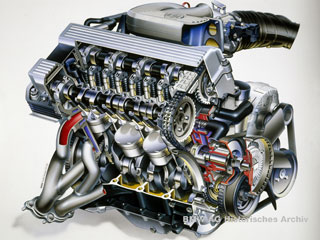BMW 318ti: A Comprehensive Guide to This Compact Powerhouse
BMW 318ti: A Comprehensive Guide to This Compact Powerhouse
Blog Article
Crucial Considerations for Selecting the very best Engine for Your Needs
In the realm of selecting the ideal engine to fulfill your requirements, numerous essential factors need meticulous consideration to make sure ideal efficiency and effectiveness. From the nuanced balance between power and efficiency to the often-overlooked facets of upkeep and solution needs, each element plays a pivotal duty in identifying the most ideal engine for your specific needs.
Power and Efficiency
When assessing engines for optimal performance, it is important to focus on both power outcome and performance. Effectiveness refers to exactly how well the engine converts gas into usable energy. By meticulously evaluating both power and performance, you can select an engine that delivers optimal performance and satisfies your requirements properly.
Gas Effectiveness and Economy
Gas efficiency refers to the engine's ability to convert gas right into energy with marginal waste, straight impacting operating expenses and environmental sustainability. Engines with greater fuel effectiveness not only minimize fuel costs yet also lower carbon emissions, adding to a greener procedure.

Compatibility and Application
Considering the fuel effectiveness and economy of an engine, the next critical aspect to address is its compatibility and application within specific operational contexts. Compatibility refers to how well the engine integrates with the total system or tools it powers.
Furthermore, the application of the engine is equally vital. Various engines are made for specific functions, whether it be commercial machinery, marine vessels, vehicles, or power generators. Understanding the designated application allows for the option of an engine that can deliver the required power result, torque, and functional features. As an example, a high-revving engine created for efficiency automobiles would not be appropriate for sturdy construction equipment that requires high torque at reduced speeds.
Maintenance and Service Demands
Maintenance and service needs play an essential function in ensuring the long life and optimum performance of an engine. Normal maintenance is vital to prevent break downs, prolong the life-span of the engine, and maintain its efficiency. When picking an engine, it is very important to consider the supplier's suggested maintenance schedule and the schedule of service centers or certified technicians.
Aspects such as the frequency of oil changes, filter replacements, and overall inspections can substantially influence the engine's efficiency. Some engines may require even more frequent maintenance based on their layout and usage, while others may have longer intervals between upkeep checks. It is vital to follow these solution demands to prevent pricey repair services and unforeseen downtime.

Price and Spending Plan Considerations
When choosing an engine for a specific application,Budget constraints usually play a considerable duty in the decision-making procedure. When taking into consideration the expense and spending plan implications of picking an engine, it is necessary to examine not just the initial acquisition cost but likewise the lasting expenditures associated with maintenance, fuel usage, and prospective upgrades or repair work. It is critical to strike a balance between the ahead of time expense of the engine and its total lifecycle prices to guarantee that the selected engine remains economically sustainable throughout its functional lifespan.
Elements such as gas dependability, performance, and toughness can straight affect the total cost of ownership of an engine. While an extra costly engine might have higher ahead of time costs, it can possibly lead to lower upkeep and gas expenditures gradually, therefore supplying far better worth in the future. Additionally, considering the schedule and cost of extra components, in addition to the convenience of maintenance and solution, can help prevent unforeseen financial stress in the future. By meticulously reviewing these price and spending plan factors to consider, you can make an educated decision that straightens with your operational needs and economic constraints.
Conclusion

Fuel performance refers to the engine's ability to convert fuel into energy with marginal waste, directory straight impacting operating expenses and environmental sustainability.Elements influencing fuel effectiveness consist of engine design, burning efficiency, and general performance optimization. In addition, selecting the appropriate gas type and grade as advised by the engine manufacturer can even more improve effectiveness and extend engine lifespan.
Engines with why not find out more excellent serviceability functions and easily available parts can minimize upkeep costs and reduce the time the engine is out of procedure - bmw 318ti. It is important to strike a balance in between the upfront expense of the engine and its total lifecycle costs to make certain that the picked engine stays financially sustainable throughout its functional lifespan
Report this page